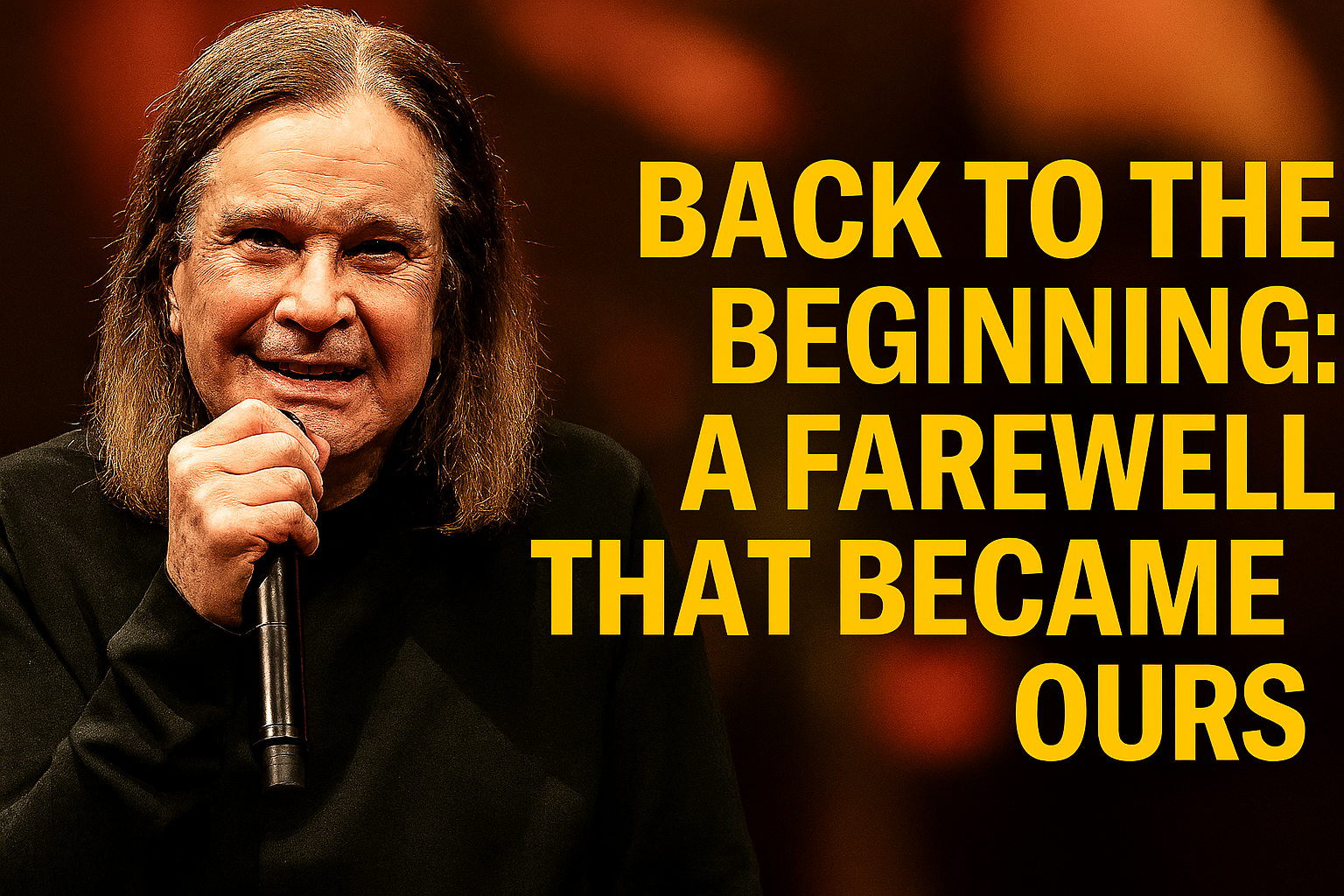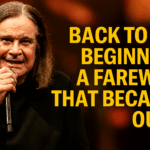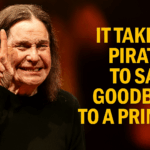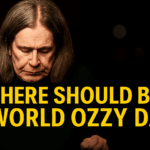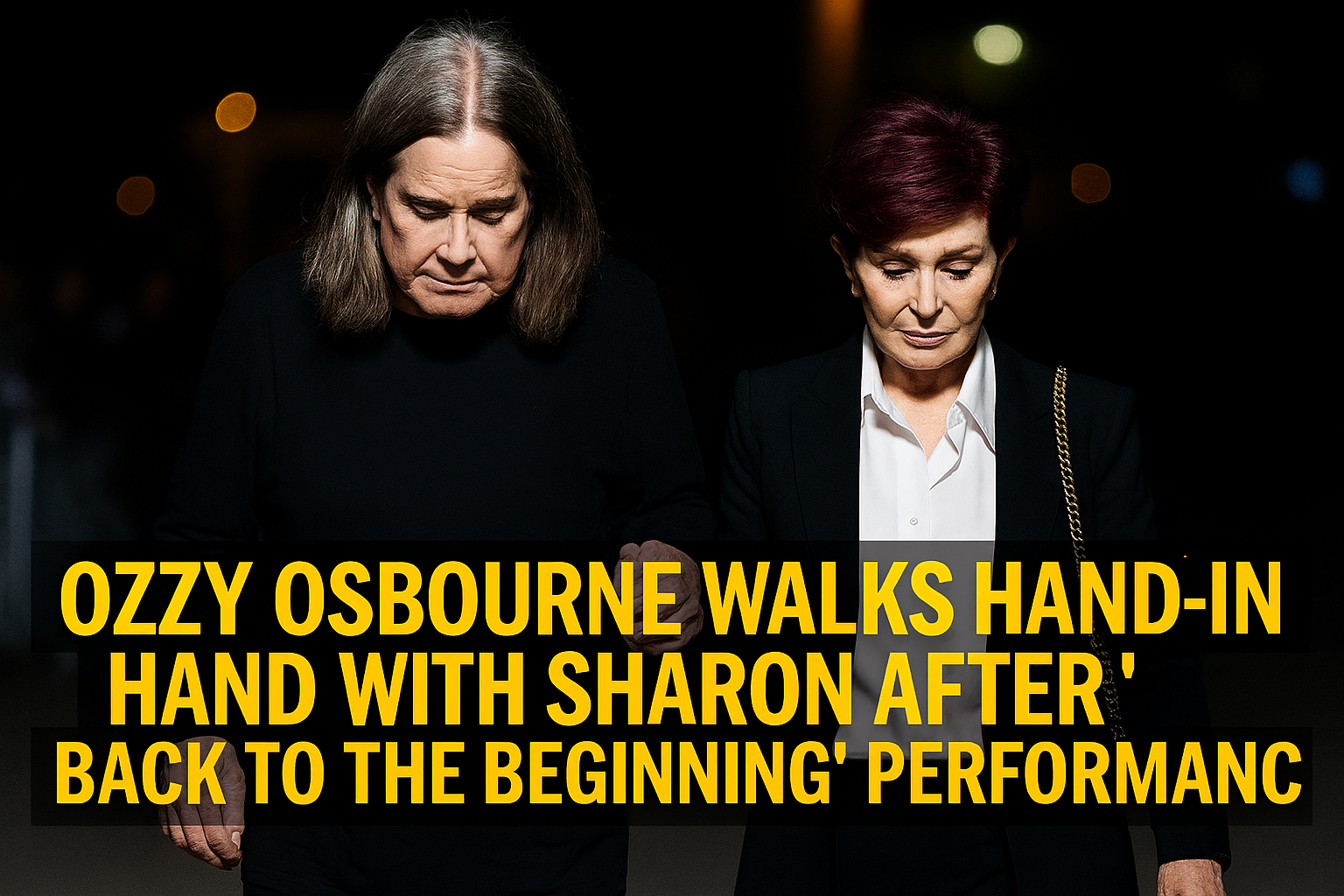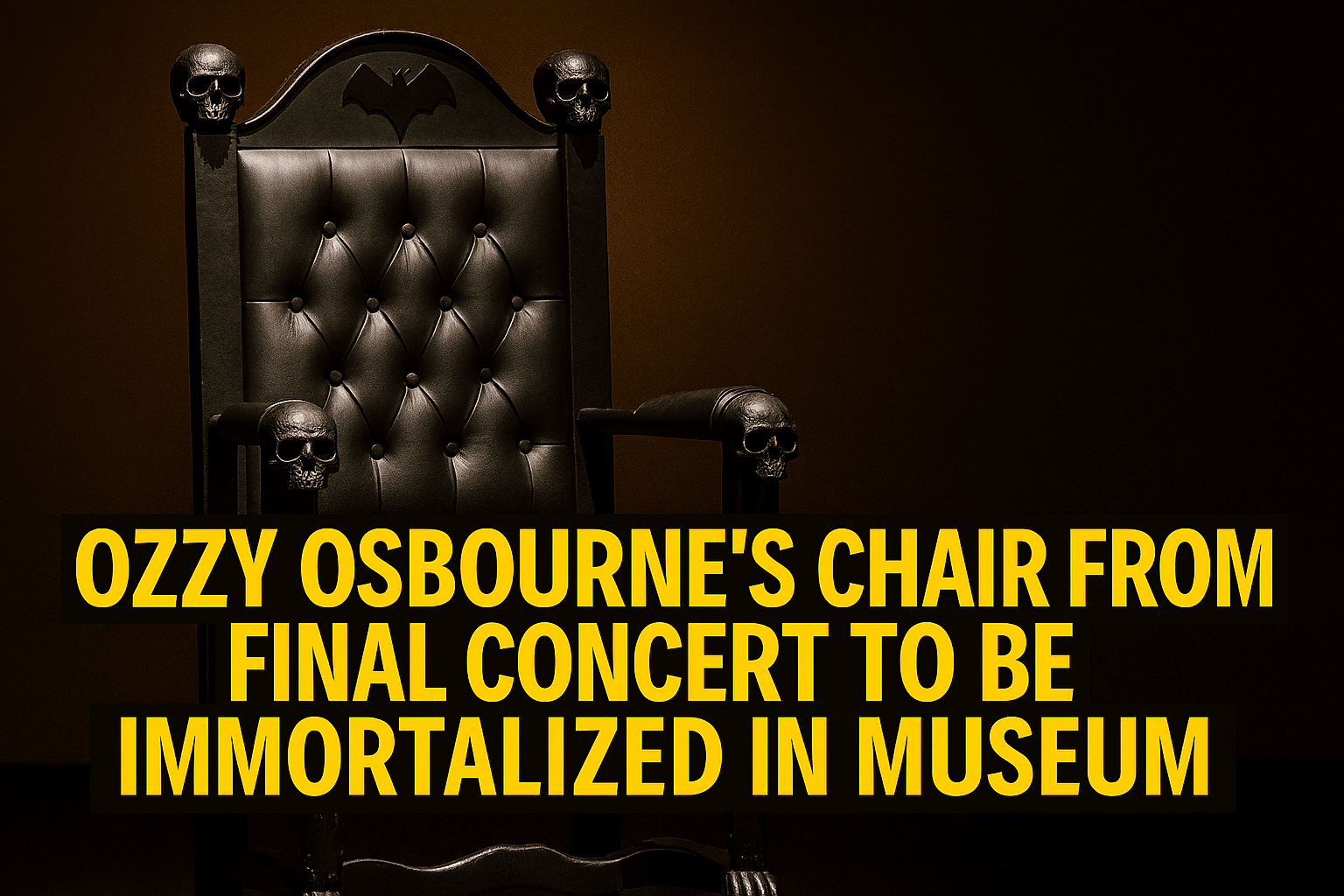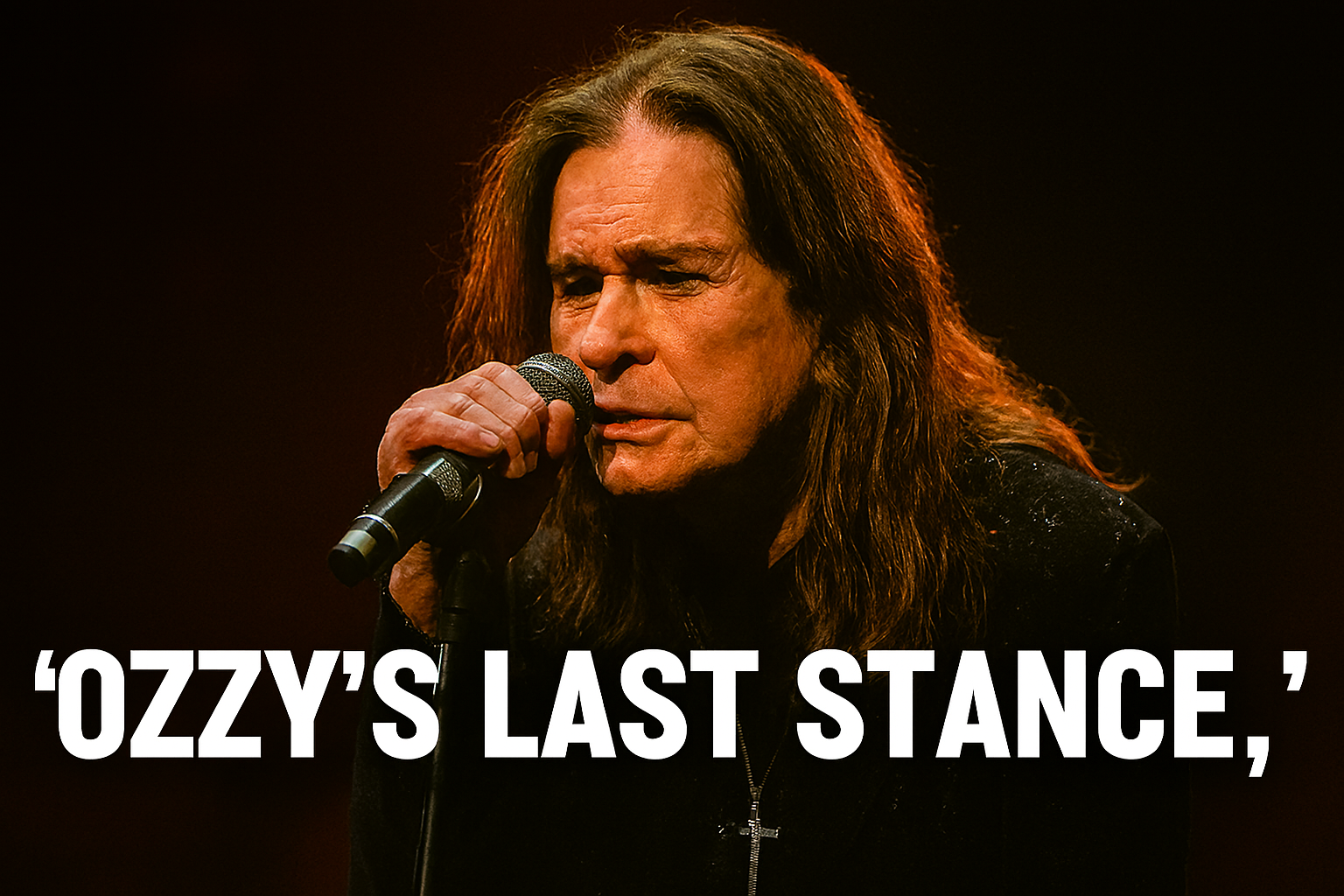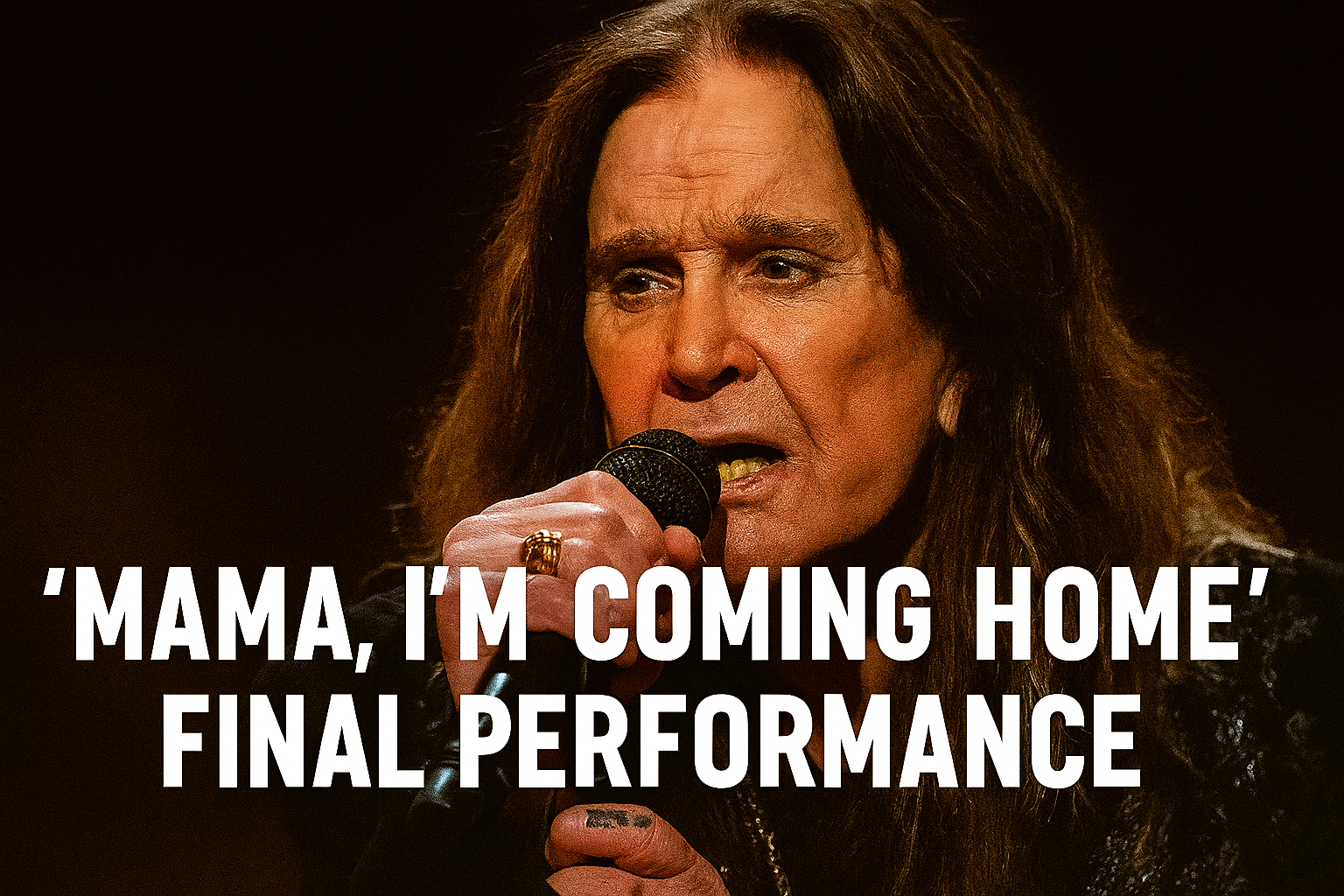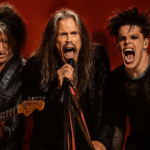Last night felt like the closing of a chapter none of us ever imagined flipping. Ozzy Osbourne sat before us like a tired king—worn at the edges, slowed by time, but full of an unmistakable tenderness. As he said goodbye to his story, we found ourselves saying goodbye to a part of our own. What played out at Back to the Beginning wasn’t a typical farewell show; it was a shared rite of passage, a communal exhale that turned a concert into a confession.
The evening was not about spectacle. There were no wild stunts or pyrotechnic distractions designed to distract from the moment. Instead, the room was charged with intimacy: guitars that felt like hands on your shoulder, drums that sounded like a heart steadying itself, and a voice that, even when cracked, still cut straight to the marrow. Those sounds didn’t just fill the air—they folded into memory and made it new again. Every familiar riff arrived not as nostalgia’s cheap echo but as a raw, living thing that reached back and pulled us forward.
When they launched into “Paranoid,” the reaction was immediate and visceral. Thousands of people sang in unison and many of us cried. The song, once an anthem of youthful fury, transformed that night into a vessel for remembrance and promise. It became proof that music can be more than background noise; it can be a keeper of histories, a ledger of personal revolutions and small salvations. In that chorus we heard our younger selves and our present selves overlap, and it felt like an act of fidelity—to memory, to feeling, to a life shaped by sound.
Ozzy’s moment of frankness—looking out across the crowd and saying, “I f*cking love you”—landed like a benediction. It wasn’t showmanly bravado; it was a line delivered from the core. For a genre often associated with distance and spectacle, that raw declaration made the night intensely romantic in a way that had nothing to do with sentimentality. It was romance as allegiance: a vow that some parts of us, once formed by music, remain anchored even as everything else changes.
The vulnerability on stage sharpened the performance’s power. Time had introduced limits: Ozzy sat rather than strode, his voice bore weathered edges, and small tremors hinted at a body no longer unassailable. But those imperfections didn’t dilute the evening—they amplified it. The cracks in the performance became proof of authenticity. They made the music feel immediate, like a last urgent message passed hand-to-hand rather than broadcast from a distance. Witnessing a legend who has survived excess, scandal, illness, and reinvention stand and offer his truth was, in itself, a kind of lesson: endurance is not the same as invulnerability, and greatness can include fragility.
There was poetry in the night’s full-circle nature. The title Back to the Beginning was literal and symbolic: a return to the city, the sounds, and the people who birthed the story. Seeing original collaborators share a stage one last time was not mere nostalgia; it was closure and gratitude made public. These reunions reminded us that creative bonds can outlast time, politics, and personal collapse, and that certain relationships carry a weight only lived experience can grant.
More than anything else, the evening felt communal. We arrived as individuals with private attachments—first concerts that rewired our adolescence, songs that mend heartbreaks, riffs that became part of how we speak to ourselves—and left as a crowd stitched together by the same sounds. That alchemy is rare: a public event turning into a private reckoning and then back into a shared memory in the span of a few songs. We carried each other through the night, and the music carried us through our own histories.
Endings are complicated: messy and magnificent at once. Ozzy’s farewell showed that an ending needn’t erase a beginning; it can fold it inward and make it live inside us. A great riff or lyric doesn’t disappear when a stage goes dark; it becomes an echo that hums under our lives, surfacing unexpectedly in a lonely car ride or a crowded bar. The lesson of the night was simple and profound: true love—whether for people or for music—doesn’t vanish. It changes form. It becomes memory shaped by time and repeated until it is part of the fabric of who we are.
So we walked away with more than a setlist. We carried a chorus that will surface when we need it, a line that will finish our sentences when grief or joy demands a shape, and a tenderness that arrived in the rough, honest language of rock. The night didn’t mark an annihilation of rock or of Ozzy’s influence. It reiterated that rock’s lessons—loyalty, fury, devotion—are not extinguished but passed along.
If anything, Back to the Beginning proved that the beginning is also an interior place. Legends may step off stages, but the echoes they leave behind live inside the people they touched. As the lights dimmed and the last notes hung in the air, the music didn’t end. It became part of us—an internal refrain that will keep playing, soft and persistent, whenever we need to remember who we were and what we loved.
